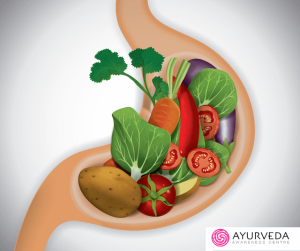The father of modern medicine, Hippocrates, said it himself: “All disease begins in the gut”. Gut health is buzz word at the moment. Here we are looking at one of the gut issues, called Leaky gut, also known as increased intestinal permeability. It is a digestive condition in which bacteria and toxins are able to “leak” through the intestinal wall.
When the gut is “leaky” and bacteria and toxins enter the bloodstream, it can cause widespread inflammation and possibly trigger a reaction from the immune system.
The gastrointestinal (GI) tract or digestive tract is where food is broken down and nutrients are absorbed. The walls of the intestines act as barriers, controlling what enters the bloodstream to be transported to your organs. The lining of your gut is similar to a fine net, built of just a single layer of cells. It is this barrier that keeps food in your digestive system until it can be broken down safely.
If your gut is healthy, tiny holes in the lining allow nutrients to pass through, while blocking the passage of harmful substances. This is how your body absorbs vitamins, minerals and other vital nutrients. Intestinal permeability refers to how easily substances pass through the intestinal wall.
When there is an inflammation in the gastro-intestinal mucosa, the intestinal wall becomes excessively permeable, and the tight junctions of intestinal walls become loose – a condition called leaky gut. The gut becomes more permeable, which may allow bacteria and toxins to pass from it into the bloodstream. This phenomenon is commonly referred to as “leaky gut.”
Gut Health: What makes it “Leaky”?
Leaky gut syndrome remains a bit of a medical mystery, and medical professionals are still trying to determine exactly what causes it. Some of the common causes of both leaky gut and digestive dysfunction are:
- Inflammation: Chronic inflammation throughout the body can contribute to leaky gut syndrome
- Stress: Chronic stress is a contributing factor to many GI disorders, including leaky gut.
- Poor gut health: There are millions of bacteria in the gut, some beneficial and some harmful. When the balance between the two is disrupted, it can affect the barrier function of the intestinal wall.
- Yeast overgrowth: Yeast is naturally present in the gut, but an overgrowth of yeast may contribute to leaky gut.
- Nutrient deficiencies: Deficiencies in vitamin A, vitamin D and zinc have each been said to play a role in increased intestinal permeability.
- Excessive sugar intake: An unhealthy diet high in sugar, particularly fructose, may harm the barrier function of the intestinal wall.
- Excessive alcohol intake: Excessive alcohol intake may increase intestinal permeability.
- Non-steroidal anti-inflammatory drugs (NSAIDs): The long-term use of NSAIDs can increase intestinal permeability and contribute to leaky gut.
- Parasites: Parasites can cause extensive damage and can produce symptoms like allergies, constipation, diarrhoea, wind, bloating, irritable bowel syndrome, joint and muscle aches, anaemia, skin problems, sleep disturbances, chronic fatigue, and gradual immune dysfunction. Parasites release toxins that damage tissues, resulting in pain and inflammation, particularly in the gastrointestinal tract and they can depress, the immune system.
Diseases Associated With Leaky Gut
Many studies have connected increased intestinal permeability with multiple chronic diseases like Celiac Disease Celiac disease is an autoimmune disease characterized by a severe sensitivity to gluten. Several studies have found that intestinal permeability is higher in patients with celiac disease, Diabetes, Crohn’s Disease, Irritable Bowel Syndrome and Food Allergies.
● Food allergies
● Inflammatory Skin Conditions
● Bloating and Gas
● Autoimmune disease
● Inflammatory Bowel Disease
● Thyroid conditions
● Lethargy after Eating
● Brain fog
Ama and Agni
Two important concepts in Ayurveda that we need to understand for improving gut health are Ama and Agni.
Ama is the sticky waste-product of incomplete digestion that builds up in the digestive tract when your digestion is either weak or overloaded with the wrong foods. Ama can be thought of as the ultimate result of a disrupted microbiome and injured gut lining, allowing undigested food, bacteria, or environmental toxins to enter the bloodstream. Ama is a precursor of disease.
When our gut bacteria are disrupted, the gut wall becomes more vulnerable. Antibiotics, poor food choices, and other factors can then lead to damage in the gut wall, which results in increased intestinal permeability and leaky gut syndrome. What this means is that undigested or semi digested food, harmful bacteria, and environmental toxins are able to enter our bloodstream.
Ama is not one single thing; it can be different types of foreign substances or toxins that get into the body and trigger our immune system, leading to chronic inflammation and disease.
In Ayurveda, agni means the fire of digestion, which can be translated as the digestive enzymes that break down different foods. This definition can be extended to include the digestive power of the bacteria in our lower gut. The combination of specific bacteria with the sensitivity of our gut determines how much gas we produce and whether we experience bloating, pain, constipation, diarrhea, or comfort and ease.
We aim to reduce ama and enhance agni for improved gut health, and to repair leaky gut.
How to Improve Your Gut Health and Support the Resolution of Leaky Gut.
There are steps you can take to improve your gut health. Here are a few strategies:
- Remove food triggers: this is probably not forever, just for some time, so the gut lining has time to heal and rejuvenate.
- Reduce inflammation: herbs like turmeric, amalaki, aloe vera or licorice root can be typically used.
- Support liver in detoxing: Liver is responsible for removing toxins from the body. Herbs like turmeric, barberry, guduchi, bhumiamalaki, can be typically used.
- Change diet with anti-inflammatory, and healing foods according to your dosha, and to remove ama from the body.
- Restore longevity by improving gut flora for better gut health with supplements etc.
Ama Reducing Diet
We would typically start with a couple of weeks of ama reducing diet that included foods to favor and foods to avoid. Avoiding food triggers is very for improving your gut health. Avoid the inflammatory foods, which can trigger bloating, gas, heartburn, constipation, and diarrhea. Some typical ones are wheat, gluten, processed meats, snacks and foods, sweets, dairy, artificial sweeteners, alcohol, and sugary drinks.
Foods to favor includes focus on the foods that offer anti-inflammatory and antioxidant properties that are nutrient-rich and whole. Typically, fresh Vegetables and fruits, gluten-free grains, healthy fats, some Herbs and spices eg. cardamom, cumin, fennel, coriander, turmeric, and parsley. A simple khitchari meal, ama reducing broth and herbs like triphala are important part of our ama reduction plan






